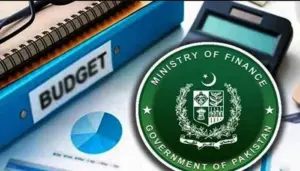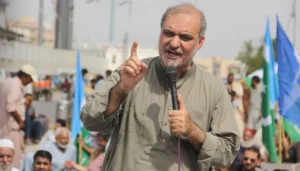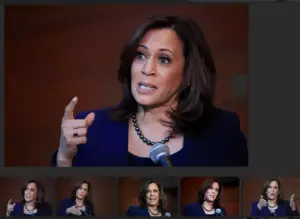Hindrances in implementation of Sindh Women Agricultural Workers Act discussed

Hindrances in implementation of Sindh Women Agricultural Workers Act discussed
Public Private Dialogue discusses pros and cons of law
KARACHI, March 9,2022- Representatives of Sindh Rural Agriculture Support Organization, Sindh Chamber of Agriculture, Sindh Abadgar Board, Livestock and Fisheries department Sindh discussed the prospects for the enactment of the Sindh Women Agricultural Workers Act, 2019 and highlight the challenges hindering the implementation in a public private dialogue.
The dialogue was organized by Research and Development Foundation (RDF) in collaboration with Mohatta Palace Museum and Sindh indigenous and Traditional Crafts Company (SITCO) under Growth for Rural Advancement and Sustainable Progress (GRASP) project funded by the European Union (EU) and implemented by International Trade Centre (ITC), on Wednesday at Mohatta Palace Museum, Karachi.
Mr. Robert Skidmore Chief of the Sector and Enterprise at ITC mentioned that women farmers are generally neglected on policy level but this Women agricultural act holds an important place in terms of promoting the rights of women agricultural workers. He stated GRASP as a best opportunity in this regard and said that GRASP is there for next 3 years and can provide support to the implementation of this act.

Irrelevant and unpractical points included in the Act
Dr. Shireen Narejo, Technical Advisor at Sindh Rural Agriculture Support Organization highlighted on the importance of Sustainable development goal No 8 which states the Decent Work and Economic Growth. She highlighted the irrelevant and unpractical points included in the Act such as provision of 120 days maternal leave, whereas government policies mentioned only ninety days leave in their policies. She criticized that if there is no any law about fixed wages of males so how it can be considered for females only.
Hence, Dr. Shireen emphasized on the equality in laws for men and women and its regulation. Furthermore, she highlighted the irrelevant inclusion of Benazir Income Support program in the act which is more concerned to the operations department instead of act. She also highlighted that there is no proper directions mentioned about the rights of lactating women in the act. She focused on the need to make gender sensitive and gender inclusive laws and work on making this women agricultural law workable.
Climate change affects both, men and women agricultural workers
Mr. Nabi Bux Sathio, Vice President Sindh Chamber of Agriculture emphasized on the role of women in agricultural sector and said that climate change is a major indicator in the field of agriculture which adversely affects both, men and women agricultural workers. Hence, it should be focused in the act along with technical advancement, which is also very crucial component to consider. Government should ensure the insurance of women agricultural workers so that their rights could be protected.

Useless if not implemented properly
Mahmood Nawaz Shah, Vice Chairman Sindh Abadgar Board regarded agriculture sector as an asset for the country which contributes 23% in GDP, where 75% agrictural workers are women. He raised critical point about lack of rights of agricultural women. Creation of law is a good first step, it gives recognition but it is useless if not implemented properly. Therefore, he focused on the need to authorize relevant departments to facilitate women to avail their rights. He suggested to include health related issues of women farmers and their child in the act.
Mehboob ul Haq, Managing director of Sindh Enterprise development Fund (SEDF) mentioned about different grants provided to agricultural worker by their organization. We aim to make sure to maximize the profits by collaborating with different organizations.
Aijaz Ahmed Mahesar, Secretary Livestock and Fisheries Sindh highlighted his expectation from GRASP to connect with the relevant bodies and get the act reviewed to make it practical and workable. He also emphasized to have consultation directly with women farmers working on ground level and get their feedback and suggestions on the existing act.
Dr. Sahar Gul, Gender Advisor GRASP Sindh welcomed all the guests and introduced the GRASP project which is working in three areas; making gender sensitive policies, capacity building and strengthening the market linkages. She briefed about different chapters of the Sindh Women Agricultural Workers act which is a rich law headed by Labour department.
Participants suggested that Agricultural department should take responsibility of implementation of this act.






